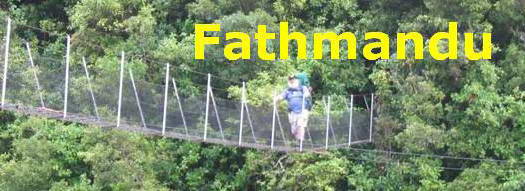Onwards to where Barry is waiting to show us his garden. Barry is a former cabinet maker, originally from New Zealand, who has spend much of his working life engaged in restoration work at Kingston. He has a huge garden, which, along with his son, he's put together with as much care as any of his fine restoration work in wood.
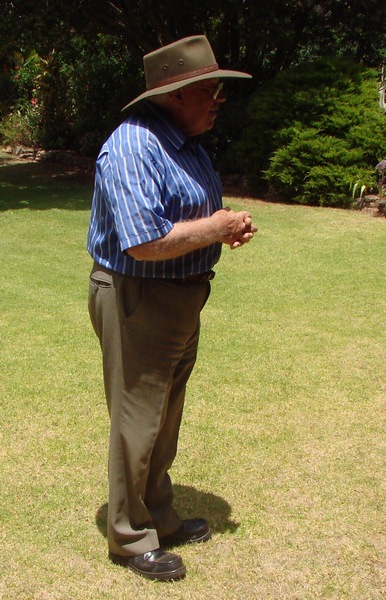
This is the first time in his recall that the stream feeding the gardens from the bottom of the valley has dried up. He has a couple of large storage tanks, but is nevertheless anxious.
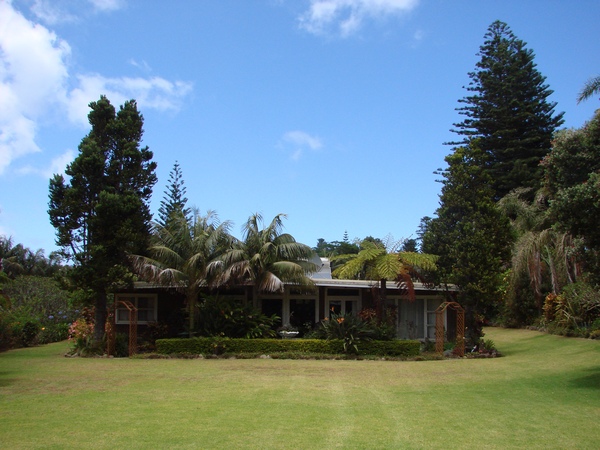
Agapanthus grow to nearly 2 metres over here.
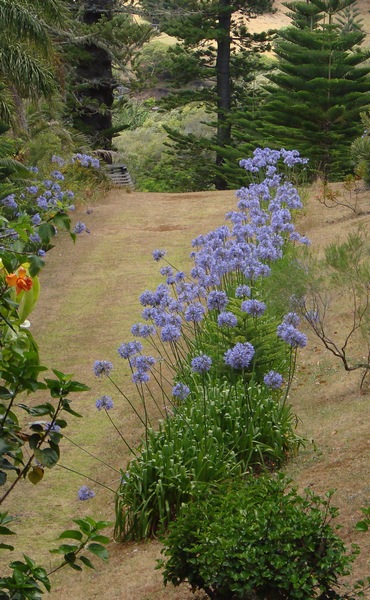
And here's one of Barry's special favourites, a bright yellow hibiscus:
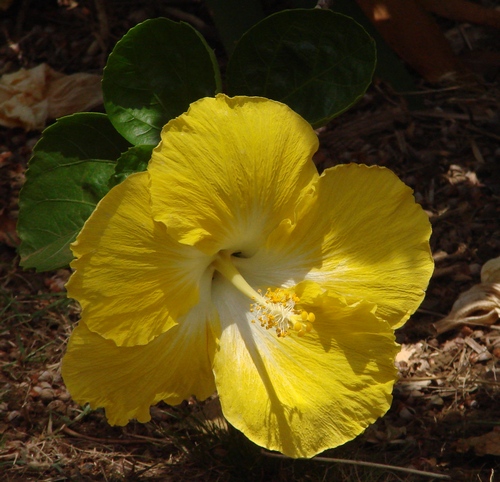
He tells us that hibiscus respond well to strong pruning and come away vigorously.
Bananas here are mostly the short varieties, and very sweet they are, too.
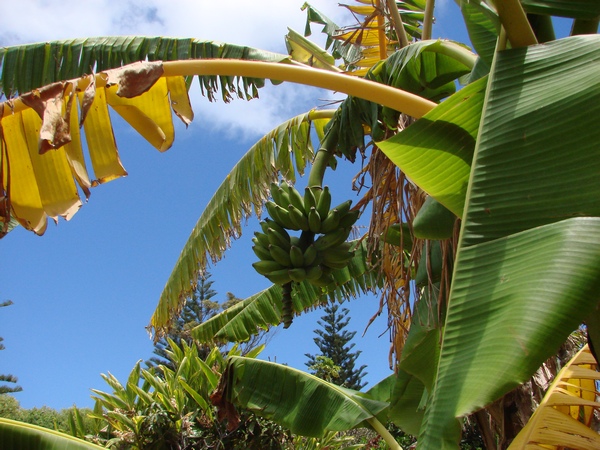
I recall from my time here as an eleven year old that this was the first time I had ever tasted a pawpaw.
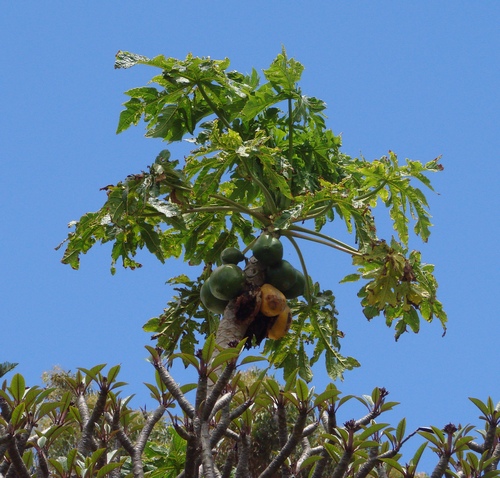
We head back to the bus.
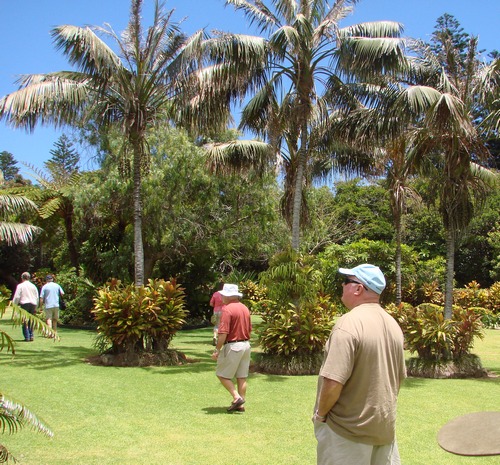
Next stop is Sweeties, where we are introduced to the mysteries of chocolate making and take time for one of the locally made icecreams. The quilts here are a feature well worth taking some time with.
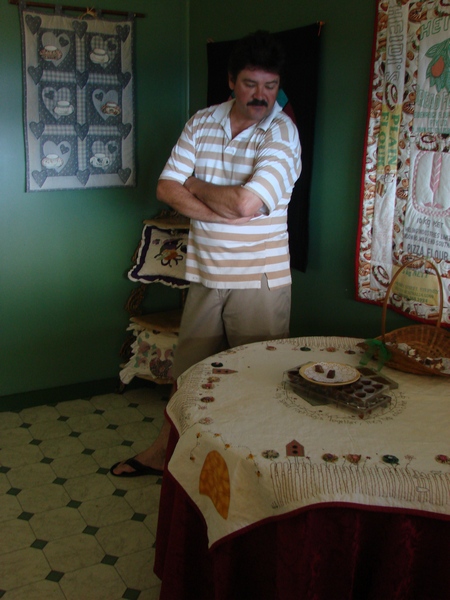
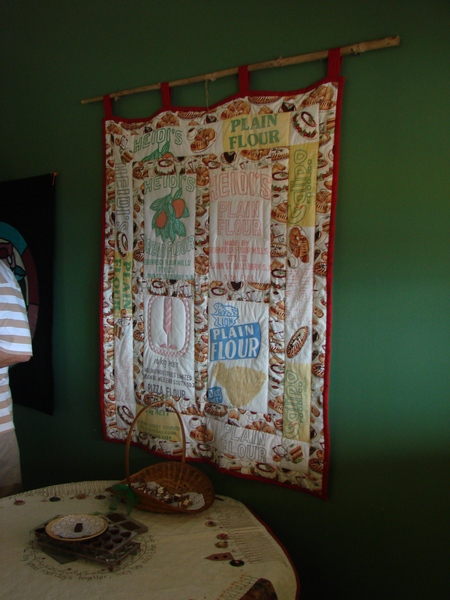
That's officially the end of the trip but as a bonus we head down to Cascade where a ship is unloading. This vessel plies between Australia, Norfolk and New Zealand and calls at intervals of a month to six weeks. All unloading is done by lighter, and managing the boats in a sometimes choppy sea is a demanding skill. Originally, the lighters were rowed, but now they are towed by launch.
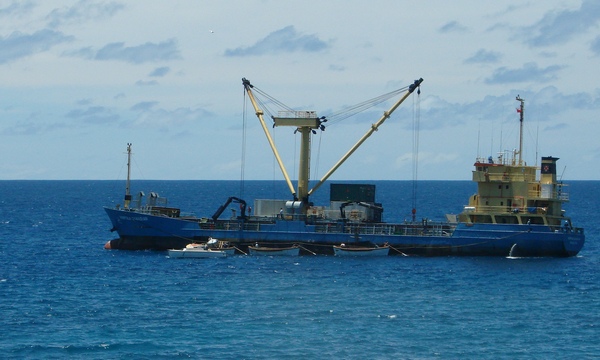
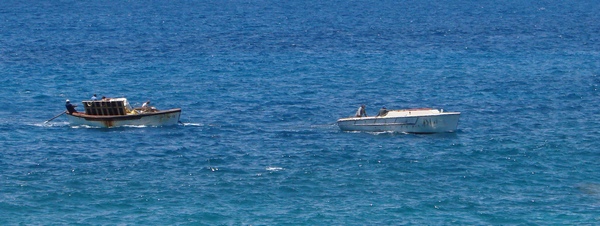
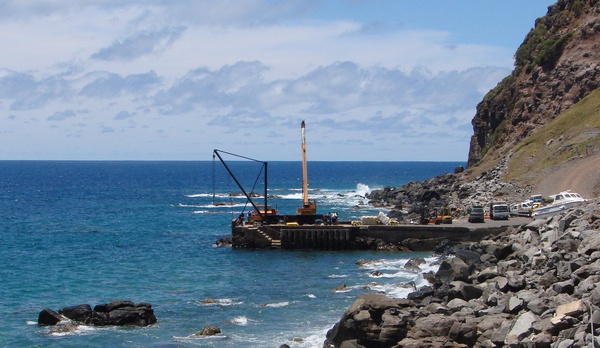
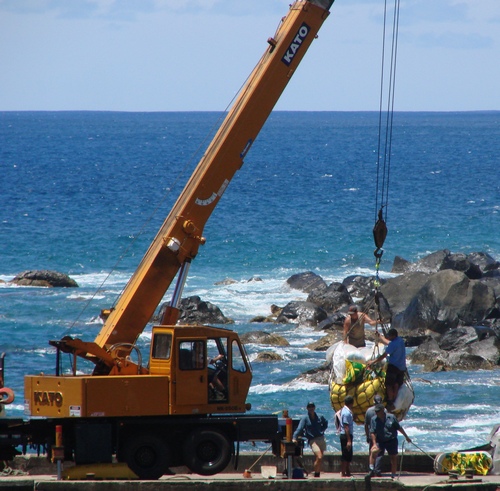
The crane also serves to launch local fishing boats.
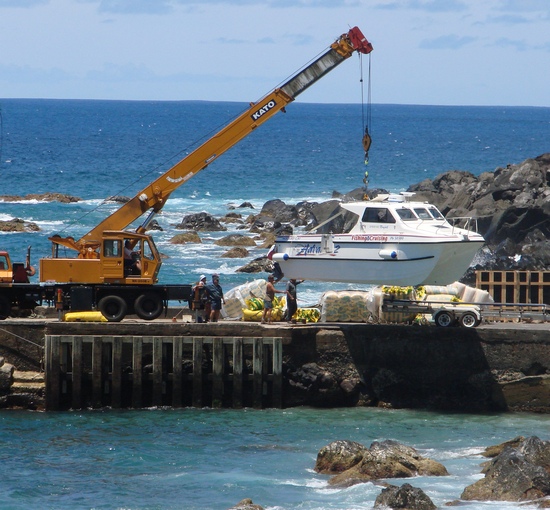
For those of us used to a boat ramp, this is all very exciting. The boat is picked up off its trailer and lowered to level with the jetty, and the fishing party board it before being lowered into the water.
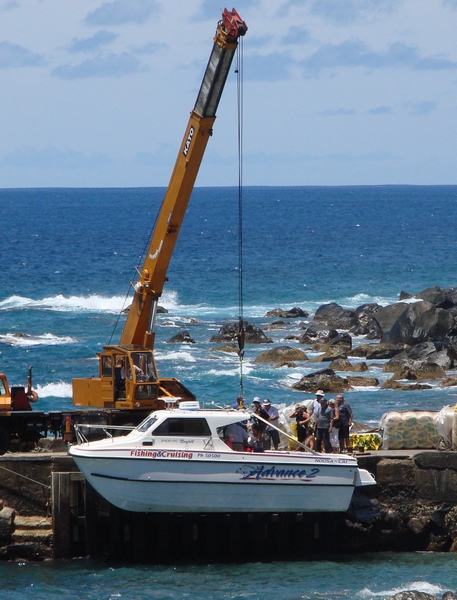
Island fish and chips are excellent. The fish is usually extra fresh, though this is to some extent dependent on the weather, and the chips are thick and beautifully cooked, not the 7mm fat sinks typically sold through McDonalds and the like in New Zealand.
We head back to Burnt Pine, but Bonny and I come back later in the evening, to catch the last of the unloading and a wonderful Norfolk cloudscape.
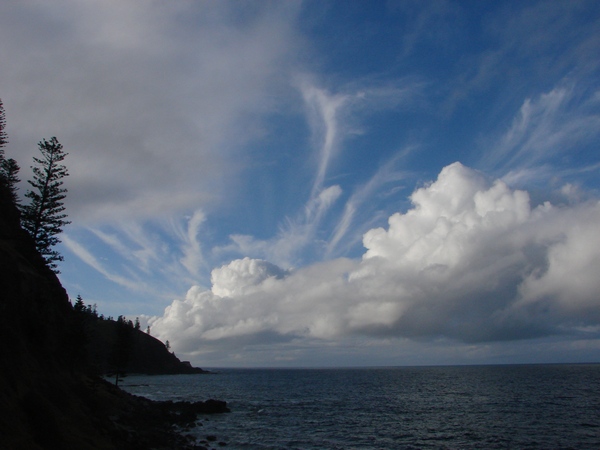
The geological formations are pretty amazing as well, but unfortunately I lack the knowledge to read them as well as I would like. The lighters are landed by crane, and then towed, in reverse, to be temporarily parked just below us. You can get a decent idea of the size of these.
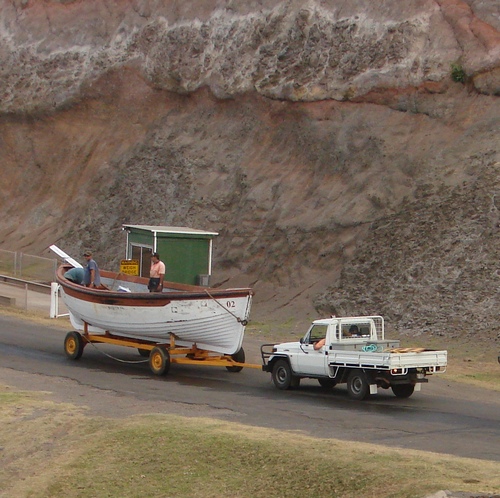
They're certainly solid.
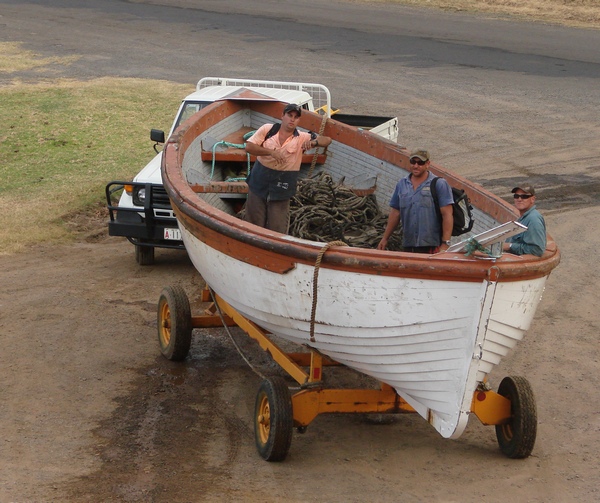
For larger items - our bus, for example - a couple of the lighters are lashed together, and the bus straddles the two. If it was my bus, I'd be covering my eyes during the process.
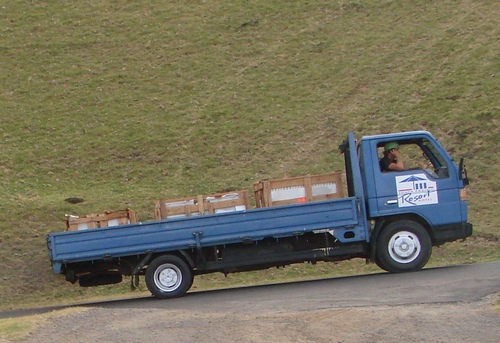
With any luck, our pasta will be somewhere on board one of the fleet of small trucks going backwards and forwards all day. And yes, they do have mobile phones on the island.
